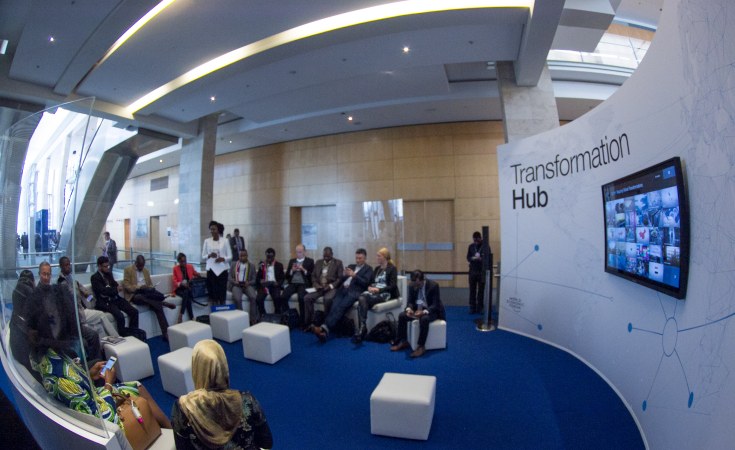Cape Town — Africa must have more women serving on company boards to sharpen the continent's competitive edge and to make inclusive growth a reality - all the way to the top.
As part of its gender strategy, the African Development Bank (AfDB) has taken up the issue of boosting women's leadership and high-level participation.
Wanting to get a snapshot of where Africa stands on female board membership, we commissioned a study of 307 listed companies, using 2013 data spanning a dozen of the continent's most powerful economies.
The results from this study, entitled Where are the women: Inclusive boardrooms in Africa's top-listed companies, were surprising in a number of ways, good and bad.
First of all, Africa is top-ranked among emerging regions by a fairly wide margin when it comes to female board membership in large-cap companies: 14.4 percent compared with 9.8 percent for Asia-Pacific, 5.6 percent for Latin America and 1 percent for the Middle East.
Africa comes right after the developed regions of Europe and the United States in this regard.
What is more, several companies were exemplary: East African Breweries has a board that is 45.5 percent female, and several firms had boards with over a third of the seats taken by women.
The study bears out, once again, that the African continent is very diverse, this time in its corporate boardroom practices.
While the southern and eastern regions each averaged about 17 percent female board membership, the country-by-country picture showed a wide range of female board participation, with Kenya reporting the highest percentage of women board directors at nearly 20 percent, and Cote d'Ivoire coming in at the bottom, with just over 5 percent.
What is truly alarming is that close to a third of African companies in the study have boards without a single woman on them, and two-thirds of companies have a miniscule presence of women at the table (one or none).
The poorest showing for female board membership was registered by small- and mid-cap companies, the market segments that account for a large share of the growth and vitality of many of Africa's nascent stock markets.
So what is holding back African firms from appointing more women to their boards? The study identified several factors that need to be tackled urgently in a concerted push by government, stock exchanges, the private sector and civil society.
First, most board appointments are made through deeply rooted old boy networks, which often shut out diversity. Also, executive women lack visibility in their organisations. Incidentally, the benefits and the need for board diversity are not well understood on the African continent.
Second, corporate governance in Africa is still in a nascent stage, and nominations are not always done in an open and transparent manner. And last, further complicating the picture, corporate reporting is inconsistent and incomplete, largely because of weak enforcement of regulations.
But the report details solutions that already exist to turn around this situation, given enough political will and the grit to see them through, notably:
- sex-aggregated data on women directors can be published in annual reports;
- mandates for women directors should be considered for the paucity of women in Africa's largest companies;
- stronger language on gender diversity can be included in corporate governance codes and compel companies to have female representatives on boards; and
- capital markets authorities and securities and exchange commissions, and other regulatory bodies should tighten oversight of governance guidelines and regulation, and create penalties and sanctions for failure to follow them.
African countries have already taken corrective steps that take aim at the glass ceiling in the boardroom.
Kenya and South Africa have put in place mandates for women's representation on the boards of state-owned companies. The private sector has integrated gender diversity into its principles of good governance in Kenya, Morocco, Malawi, Nigeria and South Africa.
Above all, we must bring women onto corporate boards with programs to fast-track them through middle and senior management in the private sector. AfDB remains committed to fostering greater female board membership and is compiling a database of qualified female candidates that we are readying for 2016.
We need to think differently and invest markedly in women's leadership as a way to change the political and economic landscape to deliver on Africa's Inclusive Growth Agenda. Equality for women is progress for all.
Geraldine Joslyn Fraser-Moleketi. special envoy on gender of the African Development Bank, is taking part in the World Economic Forum on Africa in Cape Town.


